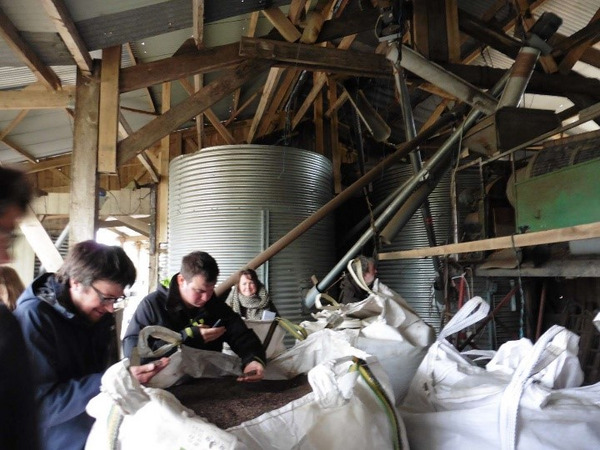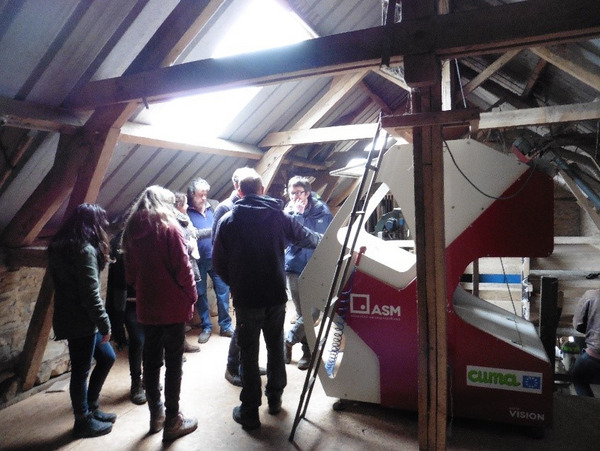Small scale dehulling of buckwheat was highlighted to be quite problematic for actors in case study 15, because most existing dehulling processes were developed at rather industrial scale. Although dehulling buckwheat always results in dehulled buckwheat, flour made out of undehulled seeds and some waste (e.g. broken seeds), the first trials of small-scale dehulling resulted in many broken seeds. To inspire them, DiverIMPACTS partner UCL organised two fam visits (13 and 14 March 2019) in Western France, which gathered French and British farmers, researchers, actors involved in local food businesses and agricultural development actors involved in promoting minor crops. Interesting expertise was shared regarding innovative farm technology to dehull buckwheat on a small scale. For example, the iterative combination of a dehulling machine working as a centrifuge (Heger model from the Moulins d’Alma company) and different possible screening strategies (mechanical screener, old winnowing machine, gravity table, optical screening owned by a small cooperative of farmers, etc.) was illustrated. Combining such technologies allowed farmers to jointly produce of 300 to 330 g of dehulled buckwheat and 400g of flour out of 1kg of buckwheat seeds. Adapted varieties for dehulling and flour, investment costs for different technological options, fair prices and marketing strategies were discussed.
Beyond the interesting knowledge exchanges that happened, this field trip was also a good opportunity to think about further collaboration between case study 15 and work package 5, which addresses barriers and drivers at the logistic, processing and retail levels. A possible outcome could be to support the creation of a European network of small-scale businesses promoting crop diversification through fair local food. This network could allow actors to exchange good practices, engage with policymakers and produce a practical guidance document with key success points to start and develop a local and fair food business based on crop diversification.
Further information
Full report: Small-scale dehulling of buckwheat. Report of farm visits in Western France (March 2019)




 tap and then scroll down to the Add to Home Screen command.
tap and then scroll down to the Add to Home Screen command.